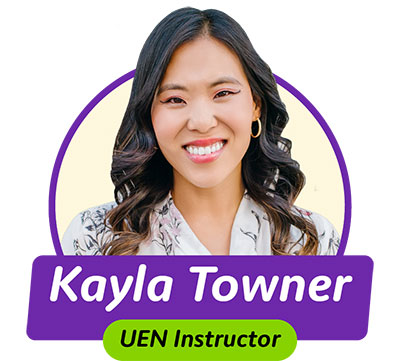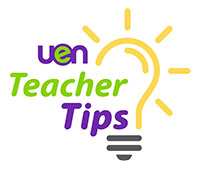UEN Teacher Tips
Imagine a classroom buzzing with excitement, with students actively participating and demonstrating deep understanding. This vision can become a reality through the power of story-based instruction. In today's digital age, students are accustomed to engaging with information through multimedia. Story-based instruction leverages this knowledge by presenting learning in a dynamic and engaging format.
Think of a science teacher captivating students with a fascinating story about a scientific discovery. Stories, whether told verbally, shown through visuals or acted out, can make learning come alive. As Dr. Gabriel McNett from Westminster College states, “Humans have a natural disposition for interpreting our experiences as stories.”
-
Choose a Story-Based Method:
-
Case-Based: Present real-world situations with defined problems and solutions.
-
Narrative-Based: Tell a linear story with a clear beginning, middle and end, with defined problems and solutions. This kind of story creates an emotional connection.
-
Scenario-Based: Create interactive scenarios where students are part of the story, exploring multiple solutions and developing critical thinking skills.
-
Problem-Based: Present challenging problems with no easy answers, encouraging students to investigate and find solutions.
-
Address Digital Storytelling Aspects: Identify and incorporate key elements such as purpose, plot, dramatic question, story content, economy of content and more.
-
Outline Your Story-Based Instruction: Use a storyboard to plan your lesson, especially if creating a digital story.
-
Write Your Script: Prepare a script to guide your voice-over narration.
Choose a Digital Creation Tool: Select a tool like Canva, Adobe, Google Slides, Book Creator, etc., to create your digital story.
Helpful Resource:
-
Transforming Pedagogies Through Digital Storytelling: Framework and Methodology
-
Example Story-Based Instruction Digital Story - The Garden Story
Kayla Towner is the Utah’s Online School Library (UOSL) Product Manager and a Teacher Fellow for Hope Street Group. She’s passionate about learning that focuses on student agency and encourages educators to expand their comfort zone. Before her work at UEN, Kayla was an elementary school teacher in Utah (Davis) and South Korea.

Share this tip:
You Might Also Like:
- 5 Tips To Talk About Digital Citizenship Every Day
- Screen Time: It’s About Quality
- What Is Media Literacy?
- Five Tips for Embracing the Holidays in the Classroom
- Better Discussions, Better Engagement


 UTAH EDUCATION NETWORK
UTAH EDUCATION NETWORK

 Justin
Justin Dani
Dani Rob
Rob Val
Val Kayla
Kayla

